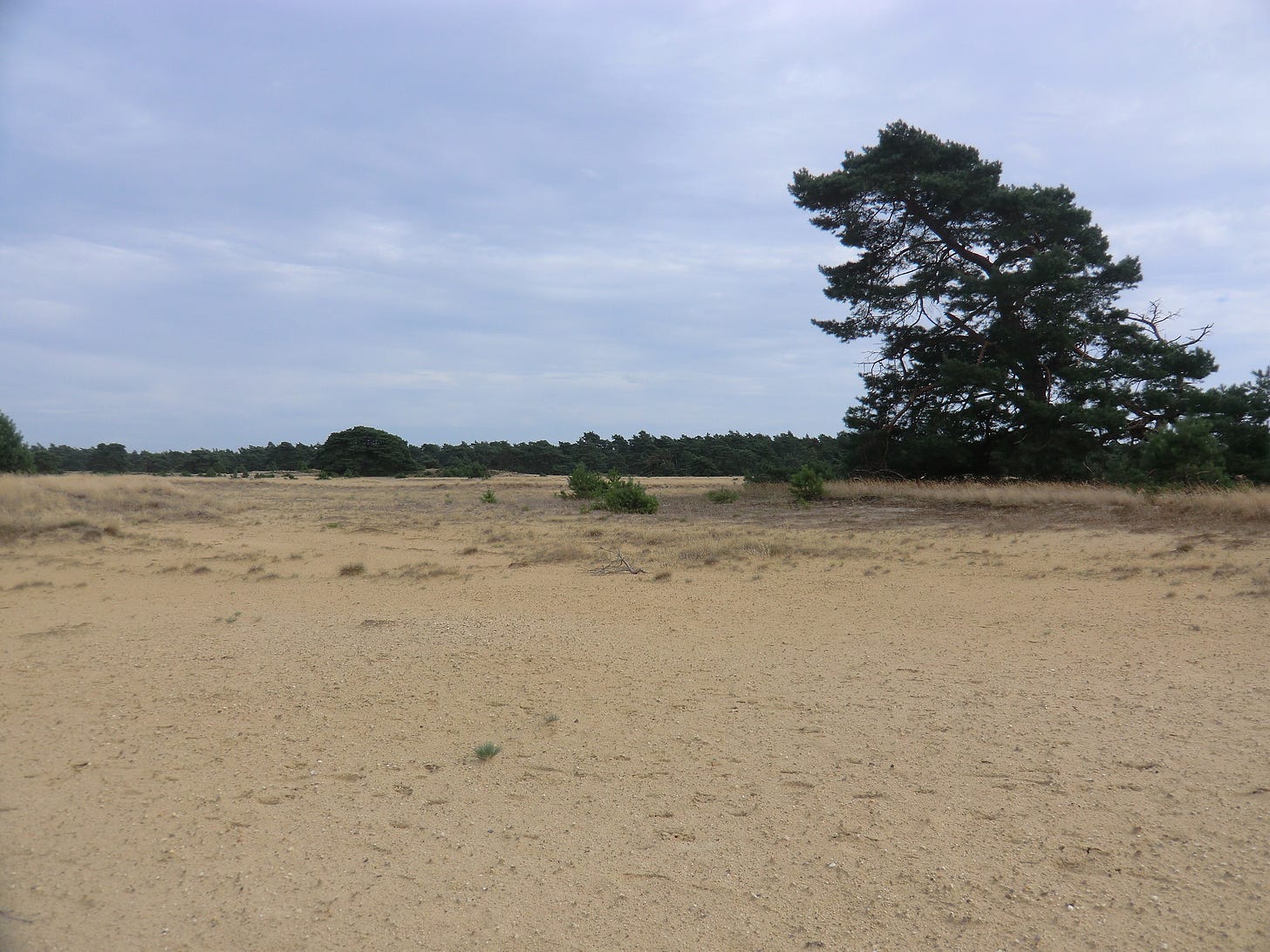First of all, I wish you a happy new year, with the best wishes and hopefully plenty of precious moments with your loved ones in these uncertain times. Make the best of it.
It is a good opportunity to think about what really matters, to think about what we want and where we are going. Those are the kind of thoughts that give me solace on this (way too) warm New Year’s Day, with another new year on the horizon, full of all the challenges and uncertainties brought on by Covid, but also filled with natural disasters that can hardly be described as such anymore.
I would like to take this moment to share a stream of consciousness with you, which I wrote down after visiting the Veluwe, the largest nature reserve of the Netherlands. A bit of geological context: after the last ice age, the warming climate transformed the Veluwe from a desert into a forested area. In the Middle Ages humans changed the area back into desert through deforestation and intensive agriculture. The resulting sand drifts hampered agriculture in the surrounding areas. To combat this desertification, and to simultaneously create a source of wood for industry, new forests were planted. Many of the animal species in the nature reserve have been transported there by humans. In short, humans have played a large rol in shaping what the Veluwe looks like today.
Do we know what ‘natural’ means anymore? Or has it never really meant anything? I was reminded of these questions when I visited the Veluwe, the largest nature reserve of the Netherlands, which has a unique landscape and history that is defined by human impact.
I was about to leave the reserve and grab a bite to eat, when in the distance I noticed a group of deer grazing on a grassy heather, and briefly joined the many people flocking towards them to take photographs of this spectacle.
Is that what ‘real’ nature is now? A spectacle? A quaint oddity that we can go and observe during our free time, like a real-life television show? Like some sort of theme park, tickets are sold, snack stands crop up nearby, and groups of people follow guided tours. Is any of it still ‘real’ by that point?
Similarly, does the fact that these animals live here only because they were brought there –and because we allow them to– make them any less ‘real’? Or the fact that the forests that they inhabit were planted there by us? We are also part of nature, are we not? So if we change nature, is that not also nature?
Thinking about these matters in this manner only leaves a single conclusion that makes sense, at least in my mind. Namely that no tangible distinction can be drawn between us altering our environment through logging or agriculture and a beaver building a dam that blocks a stream. Or the blue-green algae that permanently altered the composition of our atmosphere 2.8 billion years ago (the ‘oxygen catastrophe’), creating the circumstances that allow oxygen-based lifeforms –and therefore humans– to exist.
So clearly those are not the right questions to ask if we want to get anywhere and draw lessons for our species’ future. There is simply no way to have no impact on our environment, or our fellow creatures. However, there is a big difference between impacting and disturbing. The former changes the way the world around us works, the latter prevents it from working at all.
Nevertheless, the distinction between the two can be incredibly vague. After all, a magpie can still live in the city, a dandelion can still bloom through pavement tiles, and those deer still thrive on that ‘unnatural’ heather. It is a ‘new’ nature that has formed, a new balance that was created after massive disturbances. So is the difference between impacting and disturbing simply a matter of degree?
In that case, maybe therein lies the hope. We might no longer be able to save our current world, or restore the world that once was, but we can still help shape the new one. It might not be as hospitable to our way of life as it once was, and it is likely already too late to prevent the death of many of our fellow species, but as those deer show us, a new nature will form, and we better ensure that we will still have a place in it.
Editor: Anne van Bergeijk





